What Will You Do When You Age? This Woman Has An Idea ( courtecy;- Sarah Villafranco, M.D. By Sarah Villafranco, M.D. )
What Will You Do When You Age? This Woman Has An Idea
July 8, 2018 — 9:20 AM
When my stepdad called to say that my mother was dying and I should get on a plane to come home, I hopped on the first available flight. She waited all day for my brother and me, sliding in and out of consciousness. When we walked in, she was propped up on a pillow without a wig, her salt-n-pepper, chemo-cropped hair on display. She said, with a wry, exhausted smile, "You’ve had to wait an awfully long time to see me with gray hair, haven’t you?" A week later, she died at age 64.
When I think back on that week, most of my memories are of treasured moments, helping my mom transition from this life to the next. But the memory of her being self-conscious about her gray hair on her actual deathbed just makes me mad. Really mad. Why did this powerful, beautiful woman have to waste precious seconds cracking a joke to ease her embarrassment about being seen with her natural hair color? How have we, as a culture, allowed the definition of beauty to become, simply, "young"? And how can we shift it to something better now?
I’m a doctor, trained to prolong life using modern medicine and preventive health practices. Are we really supposed to live in a frantic effort to feel, look, and act so much younger than we are? By being unrelentingly critical as we age, aren’t we setting ourselves up to feel anything but strong, happy, and beautiful? What if—and it is an IF—life provides us with the incredible privilege of getting older? How will we feel when we’re 64? What about 84?
It’s time to move into a new age in the world of beauty, especially among people who have a tendency to be tough on themselves as age-related changes appear. Here are a few thoughts about how we can move toward a healthier relationship between beauty and aging. The journey starts in your mirror:
1. Reflect on your own true beauty.
If you’ve never looked in the mirror and had a near-endless stream of criticisms about your appearance, then you should (a) pat yourself on the back and (b) write a book immediately. If, however, you have mercilessly listed your perceived flaws as you brush your teeth—crow’s feet, age spots, cellulite, flabby arms, saggy belly, dark circles, gray hair—then this is your wake-up call. How will we ever learn to see beauty in others when we are so busy disassembling ourselves?
Exercise 1
Think about someone you love deeply. It can be someone in your daily life, someone far away, or someone you’ve lost. Close your eyes right now and picture some favorite moments with that person as you breathe quietly.
All done? What did you picture? Did you imagine that person’s wrinkles? Arm flab? Saggy knees? You didn’t, right? You thought about how that person held you when you cried, or how he could know your mood from across the room, or how you two laughed until tears streamed down your faces.
So why are you spending so much time focusing on your lines and spots when they will matter so little to those who cherish you?
2. Stop criticizing others.
We all do it. We look at others and judge them based on their appearance. We subconsciously slap labels on people as we move through the world: fat, old, sexy, ugly, gay, gorgeous, weird, skinny, stuck up—you name it. Those labels come with energetic vibrations, positive or negative, and those vibrations can be felt by all.
Why do we do it? Do we feel better about ourselves when we’re critical of others? If so, that’s an insecure, unhealthy pattern. Is it just a bad habit? If so, let’s break it. Can you think of any worthwhile purpose it serves? I’m guessing you can’t.
Criticism is especially prevalent among women. We are harsh in our assessments of other women, to no good end. What she does is her business, and she has her reasons for it. Focus on yourself—this applies to all.
Exercise 2
When you feel yourself start to label and judge, replace each label in your head with the phrase "human, just like me." It applies to every person on the planet and can serve to remind you that we are all created equal.
It’s our behavior—not our appearances—that will set us apart.
3. Align with your partner.
If you’re worried that your partner will love you less or even leave you if you don’t maintain a certain appearance, it raises a few questions worth pondering. Could your fears be born of your own insecurities? Do you want to be with someone who would leave you for a younger model? Will your partner’s physical changes over time diminish your love for him or her? If these are familiar feelings, try this one.
Related Class
Exercise 3
Talk to your partner and ask what’s important to him or her or them as your relationship progresses over time. Ask specifically if your appearance is important, and, if so, how? The answers might surprise you.
If you’re single and worried that you won’t attract a partner without looking a certain way, consider the possibility that by putting your natural beauty on display, you’ll attract exactly the right kind of partner. Confidence is magnetic in a unique and compelling way, so don’t underestimate your power to attract someone by simply feeling comfortable in your own skin.
The author, Sarah Villafranco, M.D., and founder of Osmia, sporting her natural locks.
4. Ask more of society.
Aging naturally, without so many interventions, should be treated as an equal and respectable option rather than being seen as a person who has "let herself go." If you are someone who chooses Botox and cosmetic surgery, do it because it’s what makes you feel like your true self, and don’t look down on people who choose otherwise. If you are an earth mama with gray streaks and smile lines, don’t condemn those who prefer more invasive methods. Consider your role in how people see and talk about themselves, and think about how to engage in more positive conversations about beauty and aging.
I’m not saying all this is easy. In fact, I’m here to say it’s hard, and something I struggle with every single day. At 45, I am a new kind of tween. I feel young and vibrant and healthy, yet I see things changing in the mirror. I have silver hairs arriving daily, like gulls landing on a pond, after deciding to stop covering my gray last year. I have wrinkles from laughing and crying—badges of honor, to be sure, but also reminders of time’s ceaseless march. When I see myself in the mirror, negative thoughts often try to sneak into my head. When I see women whose faces are perfectly smooth and plump, I might feel a quiver of insecurity somewhere in the primal recesses of my brain. But with a bit of practice, I’m starting to acknowledge these thoughts and understand them for what they are: noise.
It is time for a new age of beauty. It’s time to live in a world where people of all ages and aging styles are authentically celebrated and respected. It’s time we encourage one another to do exactly what makes us feel most like ourselves. Because those individual selves are the only things we have to offer this world—our laughter, our love, our ideas, our creativity, our tears, our smiles, our compassion, and our kindness. In trying to be like everyone else—or even look like everyone else—we deprive the world of our unique gifts, and we limit our capacity to love. It’s time to let our beauty shine in this exact moment of our lives, silver and all.
Here's a French woman's take on aging gracefully, her way.
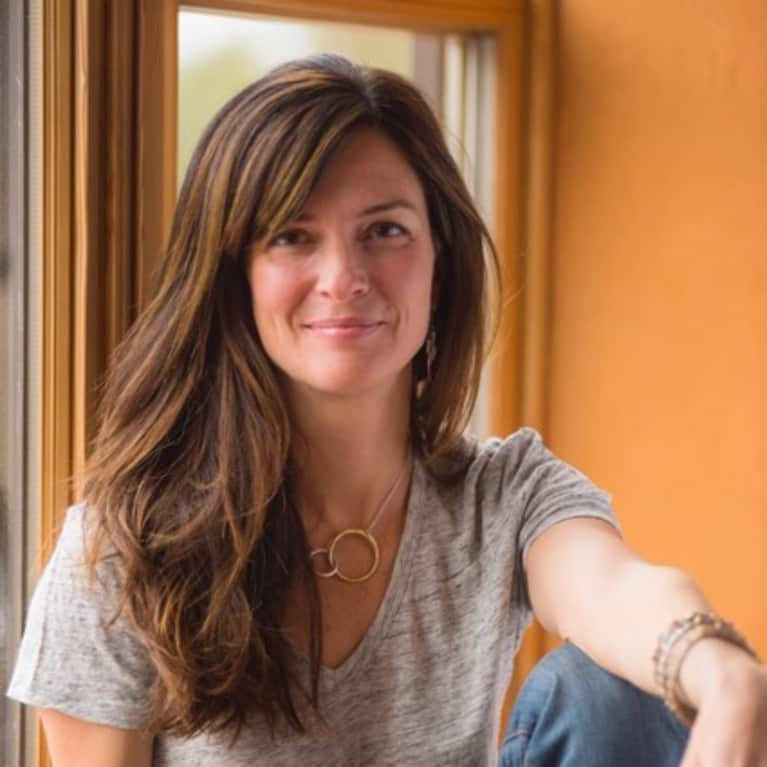
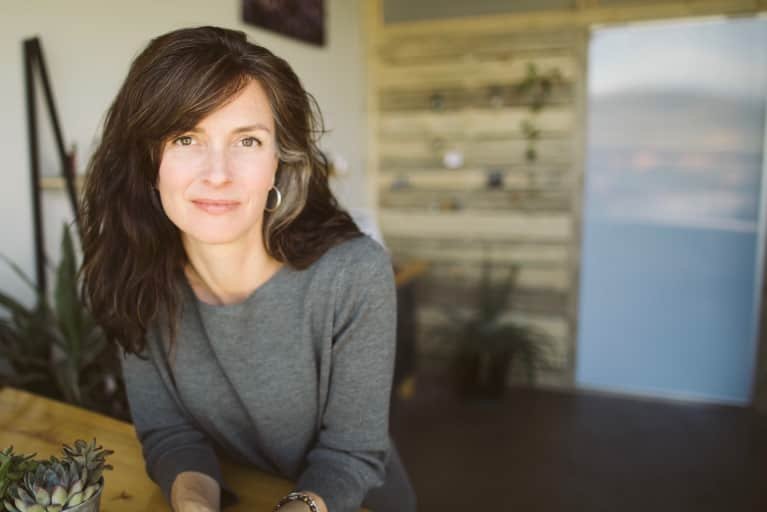
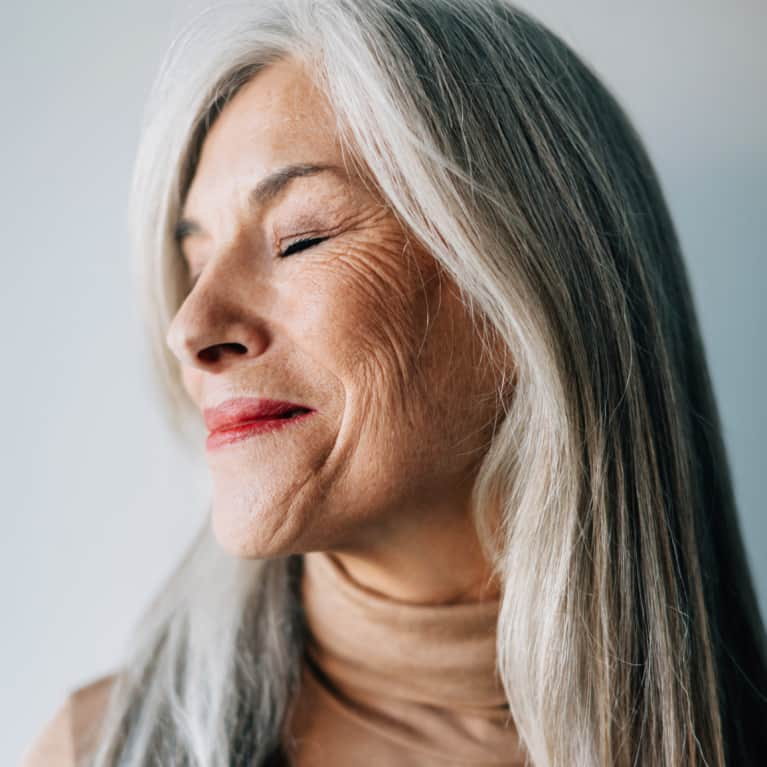
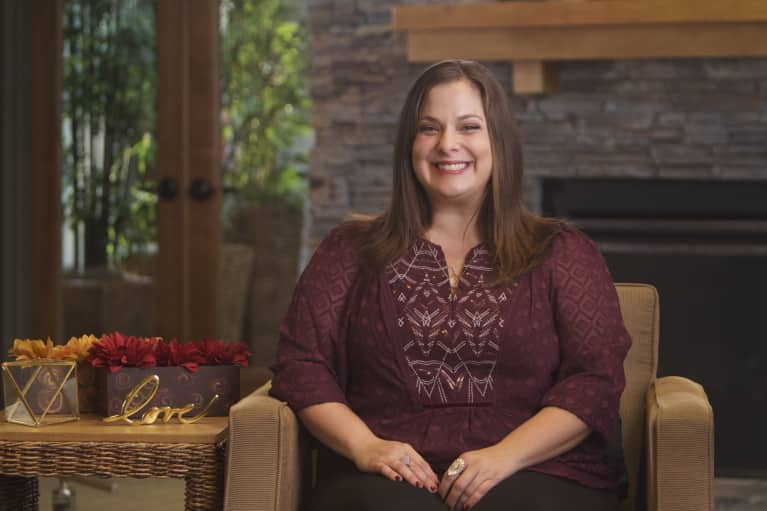
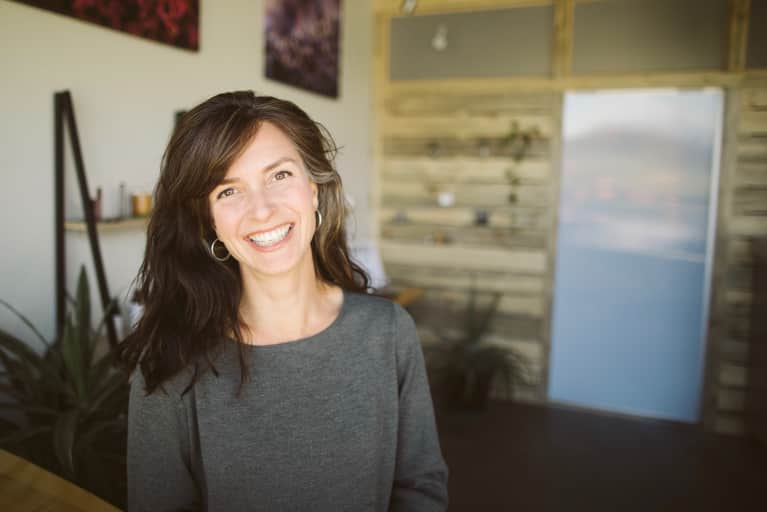
মন্তব্যসমূহ
একটি মন্তব্য পোস্ট করুন